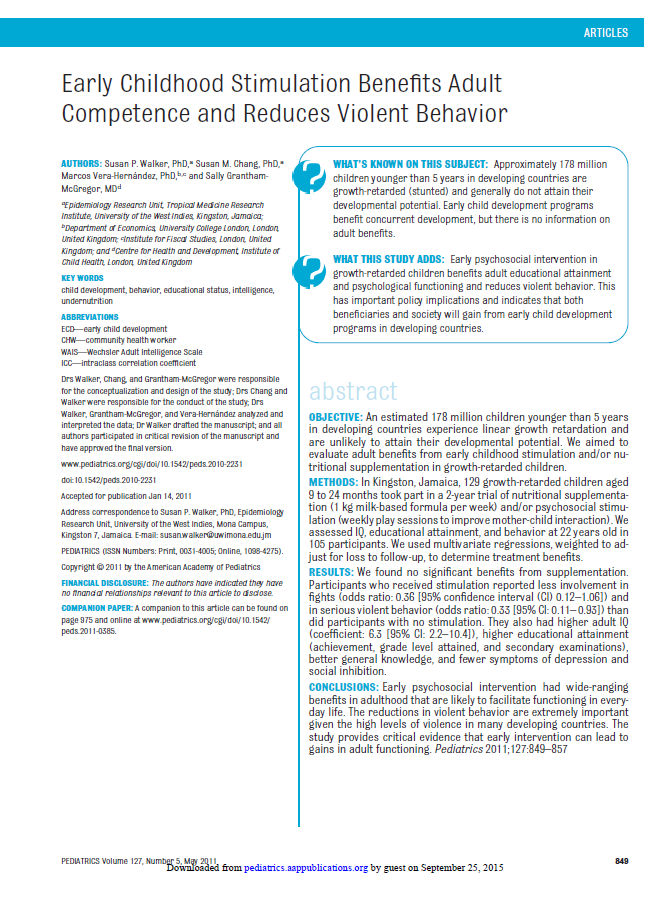Early Childhood Stimulation Benefits Adult Competence and Reduces Violent Behavior

Date
2011Author
Walker, Susan P.
Chang, Susan M.
Vera-Hernández, Marcos
Grantham-McGregor, Sally
Metadata
Show full item recordAbstract
Objective: An estimated 178 million children younger than 5 years in developing countries experience linear growth retardation and are unlikely to attain their developmental potential. We aimed to evaluate adult benefits from early childhood stimulation and/or nutritional supplementation in growth-retarded children.
Methods: In Kingston, Jamaica, 129 growth-retarded children aged 9 to 24 months took part in a 2-year trial of nutritional supplementation (1 kg milk-based formula per week) and/or psychosocial stimulation (weekly play sessions to improve mother-child interaction). We assessed IQ, educational attainment, and behavior at 22 years old in 105 participants. We used multivariate regressions, weighted to adjust for loss to follow-up, to determine treatment benefits.
Results: We found no significant benefits from supplementation. Participants who received stimulation reported less involvement in fights (odds ratio: 0.36 [95% confidence interval (CI) 0.12–1.06]) and in serious violent behavior (odds ratio: 0.33 [95% CI: 0.11–0.93]) than did participants with no stimulation. They also had higher adult IQ (coefficient: 6.3 [95% CI: 2.2–10.4]), higher educational attainment (achievement, grade level attained, and secondary examinations), better general knowledge, and fewer symptoms of depression and social inhibition.
Conclusions: Early psychosocial intervention had wide-ranging benefits in adulthood that are likely to facilitate functioning in everyday life. The reductions in violent behavior are extremely important given the high levels of violence in many developing countries. The study provides critical evidence that early intervention can lead to gains in adult functioning.
